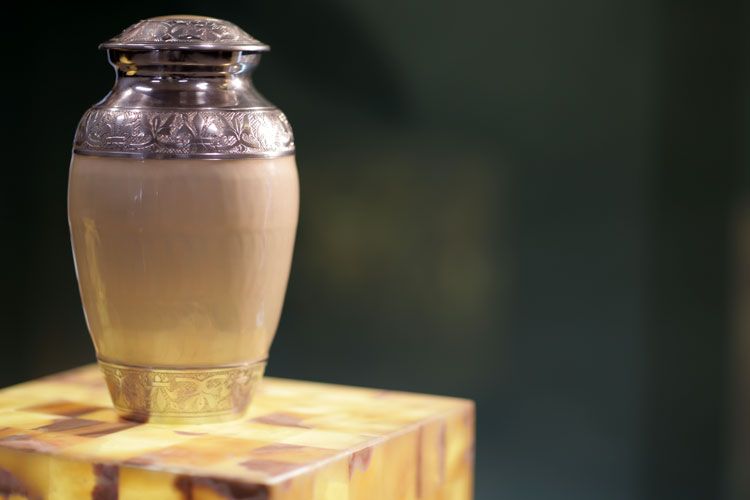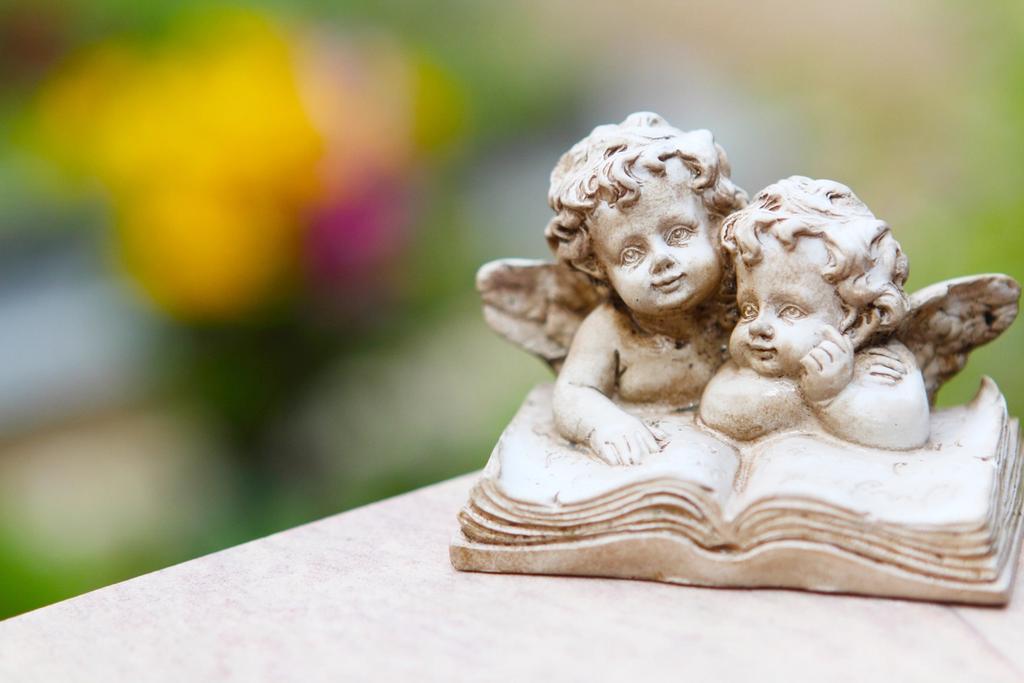How To Pre-Plan Cremation
When a body is cremated the remains are burned to ash and may be buried, interred in a columbarium, kept by the family in an urn, or scattered.

In order to consider all of your options and make the best choices for you and your family, it can be helpful to ask yourself lots of questions about how you'd like the cremation to be. By looking at the range of choices available to you, you can hopefully come to clear a decision about they type of plans you'd like to make. Then you can begin to learn about the cremation products that you'll need to purchase to facilitate the cremation.
Types Of Services Around Cremation
As with burial, you can have any type of service you'd like around a cremation. Many people incorrectly believe that choosing cremation means that you can't have a traditional funeral. In fact, cremations commonly take place after a traditional funeral. Alternatively, you can choose to have a direct cremation (with no service beforehand) followed by a memorial service at a later date.
- If you would like to have a funeral service before the cremation, where would you like that service to take place?
- If you would like to have a memorial service after the cremation, when and where would you like that service to take place?
- If you will be burying or entombing cremated remains, would you like there to be a service around the interment?
If you're planning on burying the cremated remains (either in a cemetery, in a columbarium, or in another location) you can also have a service around the interment, called a graveside service.
Related Article: Pre-Planning a Funeral Service, Graveside Service, or Memorial Service.
Handling The Remains
You have a number of options in terms of what you can do with the cremated remains. Cremated remains (sometimes called “cremains”) are usually buried in a cemetery (either in a plot in the ground or interred in a columbarium niche), kept in an urn or other container by family members, or scattered. There are also an increasing number of unconventional things you can do with cremated remains, such as turn them into jewelry, incorporate them into an artificial underwater reef, or make them into fireworks or shoot them into space, among other options.
- Would you like the cremated remains be buried at a cemetery? If so, does the cemetery need to meet specific requirements (religious cemetery, veterans’ cemetery, green cemetery, etc.)?
- If you'd like the remains to be buried, will you need to purchase a plot at a cemetery?
- If you'd like the remains to be entombed, will you need to purchase a space in a columbarium niche at a cemetery?
- Would you like the cremated remains be kept by family or friends? If so, who would you like to get the remains?
- Would you like the cremated remains be scattered? If so, where?
Related Article: Deciding What You Want Done with Your Ashes
Cremation Products
The products you will need to purchase for the cremation depend on both your preferences and the type of service you will be having.
- If you’re planning a funeral service before the cremation, you’ll need a casket. Would you like to purchase a casket that can be used for the funeral and the cremation, or could you like to rent a casket from the funeral home for the service and use an alternative container for the cremation?
- After the cremation, what type of container would you like the ashes to be stored in (if the remains will be kept by family or friends) or buried in (if the remains will be buried)?
- If the remains will be buried in a cemetery, what are the cemetery’s requirements regarding outer burial containers? Does the funeral home offer burial vaults or grave liners that meet both the cemetery’s requirements as well as your own preferences, including affordable pricing?
- If the remains will be buried in a cemetery, what are the cemetery’s requirements regarding headstones and grave markers? Does the cemetery only work with specific vendors, or can you purchase a headstone or grave marker from a vendor of your choosing?
Related Article: Pre-Purchasing Cremation Products
Cremation Costs
When compared to burial, cremation is often understood to be a more affordable option. In some cases, this may be true. (For example, the cost of direct cremation is usually significantly less than the cost of a traditional funeral followed by a cemetery burial.) In other cases, the cost of cremation can quickly add up, when you include a formal funeral service and burial of cremated remains. If cost is a concern for you, it might be a good idea to have a clear sense of how much money you'd like to spend on the cremation and the service before you make any purchases or sign any contracts or agreements.
The cost of cremation generally includes:
- Any products you’ll be purchasing, including a cremation casket, an urn to hold the remains, a burial vault or grave liner (if the remains will be buried in a plot at a cemetery), and a headstone or grave marker (if the remains will be buried in a plot or interred in a columbarium at a cemetery)
- Any services from the funeral home you’ll be purchasing, such as transportation of the body, the cost of the cremation, and the use of funeral home staff and equipment for the service, among other services the funeral home may provide
- Cemetery costs, including a plot or a space in a columbarium, fees for opening and closing the grave, “endowment care” fees, and headstone installation fees, among others
How To Arrange A Cremation
If you are planning a funeral service before the cremation, you will likely want to work with a funeral home. A funeral director at a funeral home can help you plan the service you'd like to have, and can help coordinate with the crematory that will do the cremation.
If you will be planning a direct cremation or a cremation followed by a memorial service, you may be able to work with a crematory directly. However, certain states have laws about who may coordinate a cremation, and in some state a funeral director at a funeral home must legally handle the arrangements. If you're interested in working with a crematory directly, it is a good idea to reach out to your local crematories and talk to them about the laws and regulations in your state.
Related Resources: Finding a Funeral Home | Finding a Crematory
Religious Considerations
Many religions and cultures have strict opinions on cremation—while some religions forbid cremation, others mandate it, while others are flexible. If you will be observing any religious or cultural traditions, those rules may influence your choice of disposition. To learn about different religions' perspectives on cremation, see our article Religious Perspectives on Cremation. Of course, if you have any questions about the way your religion, culture, or congregation views cremation, you should speak with your local religious or cultural leader.
Many crematories will allow immediate family members to watch the cremation. For some, this may be desirable, especially in relation to certain religious rituals (such as in Hinduism). If you are interested in watching the cremation, those arrangements will likely have to be made with the crematory ahead of time.
Communicating With Your Family
Whether you make firm arrangements for cremation (such as hiring a funeral home) or simply think about what you'd like, it's a good idea to talk to your family about what you've decided. By sharing your thoughts and decisions with your family, you can relieve some of the stress when the time comes, as they'll know what kinds of plans you've made or what you would have wanted.
- How To Express Sympathy: What To Say And What...We’ve compiled a list of things to say—and things to avoid saying—when...Read more
- A Quick Overview Of Proper Funeral EtiquetteFunerals are emotionally complex, and knowing how to act can present a...Read more
- Paying Final Bills, Dues, And Estate ExpensesIn order to settle the estate, all outstanding bills and dues that the...Read more
- Funeral Pre-Planning Cheat SheetPlan now, rest later.Read more



